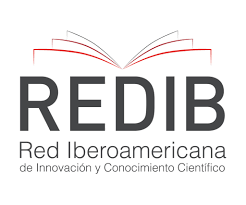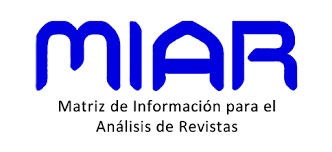Edith Stein’s Anthropology, the Foundation of an Integral Pedagogy
DOI:
https://doi.org/10.51743/cpe.461Keywords:
anthropology, Edith Stein, education, pedagogy, personAbstract
This paper focuses on the contributions made by Edith Stein - Saint Teresa Benedicta of the Cross (1891-1942), based on her conception of the person and its intrinsic link with the educational act, a humanism that inspires an integral education. According to the philosopher from Breslau, all educational practice is based on a ‘global image of the world’, which implies that all pedagogy has a metaphysical foundation; the idea of ‘man’ constitutes the centre of pedagogical knowledge and educational practice, because it has to respond to the question of the meaning of being human and to an idea of personality that is constantly evolving. Through the freedom that is inherent to him, the person can shape himself, relatively independently of his environmental conditions, since there is no mechanical causalist concatenation to explain human behaviour. For Stein, education is understood as a free process, where reason and affectivity are one; where the spirituality of the pedagogical act derives from the spiritual nature of man. Stein’s anthropology allows us to outline an integral pedagogy, oriented towards the development of a humanism anchored in the present.
Downloads
Global Statistics ℹ️
|
490
Views
|
359
Downloads
|
|
849
Total
|
|
References
Amilburu, M. G. (2014). Filosofía de la educación. En Fernández Labastida, F. y Mercado, J. A. (ed.). Philosophica: Enciclopedia filosófica on line.
Álvarez, T. (2005). Edith Stein y Teresa de Jesús: dos páginas paralelas. Monte Carmelo 113, 475-482.
Caballero Bono, J. L. (2012). Consideraciones y preguntas en torno al concepto de empatía en Edith Stein. Aporía. Revista Internacional De Investigaciones Filosóficas, (3), 15-28. https://ojs.uc.cl/index.php/aporia/article/view/64919
Caballero Bono, J. L. (2010). Ejes transversales del pensamiento de Edith Stein. Teología y Vida, 51(1-2), 39-58. https://www.scielo.cl/pdf/tv/v51n1-2/art03.pdf DOI: https://doi.org/10.4067/S0049-34492010000100003
Chávez Arreola, S. y Díaz Olguín, R. (2021). Filosofía y educación: un vínculo ineludible. Diálogo con Francesc Torralba Roselló. Revista de filosofía open insight, 12(25), 11-29. Epub 27 de septiembre de 2021. http://www.scielo.org.mx/scielo.php?script=sci_arttext&pid=S2007-24062021000200011&lng=es&tlng=es DOI: https://doi.org/10.23924/oi.v12i25.515
Giudice, C. (2022). Trazar caminos: La propuesta pedagógica de Edith Stein como consecuencia de su antropología integral. Eikasía: Revista de Filosofía, 109, 241-254. https://doi.org/10.57027/eikasia.109.336 DOI: https://doi.org/10.57027/eikasia.109.336
Gómez, G. (2020). Axiología de la palabra. El valor del diálogo, como fundamento ontológico, como vínculo humano y como recurso pedagógico. Cuadernos Universitarios, 13, pp. 67-78. DOI: https://doi.org/10.53794/cu.v13iXIII.302
Gutiérrez Aguilar, A. M. (2017) La experiencia de la persona en el pensamiento de Edith Stein. Universidad de Sevilla. Facultad de Filosofía. Sevilla (España). https://idus.us.es/handle/11441/70310
Husserl, E. (1962). Ideas relativas a una fenomenología pura y una filosofía fenomenológica. Fondo de Cultura Económica.
Meis, A. (2010). Edith Stein y Tomás de Aquino: repercusión sobre la cuestión de la mujer. Teología y Vida LI, 9-37. DOI: https://doi.org/10.4067/S0049-34492010000100002
Meis, A (2.018). La experiencia del ser humano en el mundo y su relevancia para el quehacer científico, según Causalidad Psíquica de Edith Stein. Veritas, 40, 161-190. DOI: https://doi.org/10.4067/S0718-92732018000200161
Polaino - Lorente, A. (2009) “La estructura de la persona, según Edith Stein”. Metafísica y Persona. Filosofía, conocimiento y vida. 2, 55-83. https://dialnet.unirioja.es/servlet/articulo?codigo=6509997
Sánchez Muñoz, R. (2018). Persona y formación. El aporte antropológico de Edith Stein a la educación. Revista de Filosofía Open Insight, IX:17, 25-47. DOI: https://doi.org/10.23924/oi.v9i17.318
Sancho Fermín, F. J. (2003). Introducción general. En Obras completas IV: Escritos antropológicos y pedagógicos (pp. 29-44). Espiritualidad/Monte Carmelo/El Carmen.
Stein, E. (2005). Sobre el problema de la empatía. En Obras Completas II. Escritos filosóficos. Etapa fenomenológica. Vitoria-Madrid-Burgos, pp. 216- 657.
Stein, E. (2003a). Sobre el concepto de formación. En Obras Completas IV. Escritos antropológicos y pedagógicos. Burgos, pp. 177-194.
Stein, E. (2003b). Estructura de la persona humana. En Obras Completas IV. Escritos antropológicos y pedagógicos. Espiritualidad/Monte Carmelo/El Carmen, pp. 555-749.
Stein, E. (2003c). Obras Completas I. Escritos autobiográficos y cartas. Monte Carmelo/El Carmen/Espiritualidad.
Stein, E. (1994). Ser finito y ser eterno. Ensayo de una ascensión al sentido del ser. México: Fondo de Cultura Económica.
Torbay Khoury, M. (2022). Hacia una espiritualidad steiniana para el diálogo. Instituto Superior de Ciencias Religiosas de Barcelona.
Tunnermann Bernheim, C. (2008). Panorama general sobre la filosofía de la educación. Editorial Hispamer.
Torralba Roselló, F. La Bildung como teología de la educación. Análisis hermenéutico de la obra de Edith Stein (1891-1942). Universitat Ramón Llull Fundació Rgtre. Fund. Generalitat de Catalunya núm. 472 (28-02-90) http://hdl.handle.net/10803/662935
United States Holocaust Memorial Museum. El adoctrinamiento de la juventud. Enciclopedia del Holocausto.
https://encyclopedia.ushmm.org/content/es/article/indoctrinating-youth
Urbina Valor, L. N. (2020). Educar en el humanismo solidario. Los retos para la educación universitaria católica. Cuadernos Universitarios, 13, pp. 37-48. DOI: https://doi.org/10.53794/cu.v13iXIII.299
Witemburg, G. H. (2019). La persona en la filosofía cristiana de Edith Stein. Universidad del Salvador.
Downloads
Published
How to Cite
Issue
Section
License
The author reserves the rights (copyright) of the published works, and the journal encourages and allows their reuse, from the preprint. The works are published in the electronic edition of the journal under a license "Creative Commons Attribution / Attribution-NonCommercial 4.0 International Public License - CC BY-NC 4.0", and can be copied, used, disseminated, transmitted and publicly exhibited.
The author / s partially transfer the property rights (copyright) of this work for the printed and online editions, provided that:
- The authorship and original source of its publication (magazine, publisher and URL of the work) is cited.
- Are not used for commercial purposes.
- The existence and specifications of this user license are mentioned.
It also declares to have respected the ethical principles of research and to be free from any conflict of interest.
"C.P.E." encourages the authors and the scientific community to the maximum promotion and dissemination of the works in their final version through:
1) Your list of contacts (emails) and social networks (Facebook, Twitter, LinkedIn ...).
2) Institutional repository of your University and public repositories (Mendeley, Cosis ...).
3) Scientific social networks (ResearchGate, Academia.edu, Kudos ...).
4) Personal or institutional website, blog, etc.
5) Google Scholar, ORCID, ResearchID, ScopusID, Dimensions, PlumX ...
6) Printed copies purchased directly and sent to specialists for reading and subsequent citation if appropriate.




















1.png)
1.png)

1.png)





.png)
.png)

.png)
1.png)
1.png)
